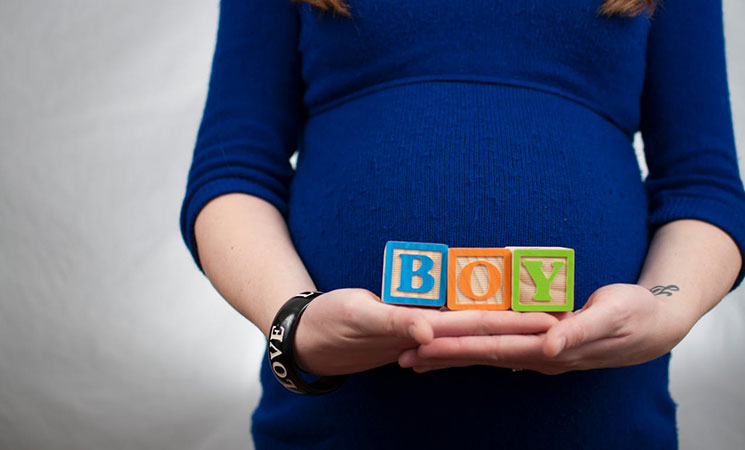Iron deficiency is one of the most common nutritional deficiencies worldwide, particularly affecting women of childbearing age. This deficiency can have significant implications not only for the mother’s health but also for her child’s development and well-being. During pregnancy and breastfeeding, the demand for iron increases substantially, making it crucial for mothers to maintain adequate iron levels.
Understanding the impact of a mother’s iron deficiency on her child’s health is essential for preventing potential long-term consequences. This article explores how maternal iron deficiency can affect a child’s health and provides insights into the importance of proper iron intake during pregnancy and lactation.
Impact on Fetal Development
Iron is vital for the production of hemoglobin, a protein in red blood cells that carries oxygen throughout the body. During pregnancy, a mother’s body needs to produce more blood to supply oxygen to the growing fetus. If a pregnant woman is iron deficient, she may not be able to produce enough red blood cells, leading to anemia. This condition can reduce the amount of oxygen delivered to the fetus, potentially affecting its growth and development.
Research has shown that iron deficiency in pregnancy is associated with several adverse outcomes for the fetus. These include low birth weight, preterm birth, and impaired neurodevelopment. Low birth weight and preterm birth are significant risk factors for infant mortality and morbidity. Babies born with low birth weight are more susceptible to infections, developmental delays, and chronic health conditions later in life.
Moreover, iron deficiency in pregnant women causes damage to the fetal brain. It undergoes rapid development during pregnancy, and adequate iron levels are crucial for this process, which can sufficiently be found in SiderAL Folic. Iron is necessary for the synthesis of neurotransmitters and myelin, which are essential for brain function and cognitive development. Iron deficiency can disrupt these processes, leading to potential cognitive and behavioral problems in the child. Studies have found that children born to iron-deficient mothers are at a higher risk of developing cognitive deficits, learning difficulties, and behavioral issues.
Impact on Infant Health
The consequences of maternal iron deficiency do not end at birth. Breastfeeding is another critical period during which a mother’s iron status can affect her child’s health. Breast milk is the primary source of nutrition for infants, and while it contains adequate amounts of most nutrients, its iron content is relatively low. Therefore, infants rely heavily on the iron stores they accumulate during the last trimester of pregnancy.
If a mother experienced iron deficiency during pregnancy, her infant might be born with lower iron stores, increasing the risk of iron deficiency anemia during infancy. Iron deficiency anemia in infants can have severe implications for their growth, immune function, and cognitive development. Infants with iron deficiency anemia may experience delayed growth and development, increased susceptibility to infections, and impaired cognitive and motor development.
To prevent iron deficiency anemia in infants, it is crucial to ensure that mothers have adequate iron levels during pregnancy and lactation. Supplementation and dietary adjustments can help maintain proper iron levels. Foods rich in iron, such as lean meats, fish, beans, lentils, and fortified cereals, should be included in the mother’s diet. Additionally, healthcare providers may recommend iron supplements to pregnant and breastfeeding women who are at risk of deficiency.
Long-Term Effects on Child Health
The long-term effects of maternal iron deficiency on a child’s health can be profound and far-reaching. Iron is essential for the proper functioning of the immune system, and iron deficiency can weaken the body’s defense mechanisms. Children born to iron-deficient mothers may have compromised immune systems, making them more susceptible to infections and illnesses. Chronic iron deficiency can also impair the child’s overall growth and development, leading to long-term health issues.
Furthermore, the cognitive and behavioral impacts of iron deficiency can persist into childhood and beyond. Studies have shown that children who were iron deficient during infancy may continue to experience cognitive and behavioral problems, including attention deficits, learning difficulties, and lower academic performance. These issues can affect the child’s ability to succeed in school and later in life.
It is also important to consider the social and economic implications of iron deficiency. Children with impaired cognitive and behavioral development may require additional educational and healthcare resources, placing a burden on families and society. Ensuring that mothers have adequate iron levels during pregnancy and lactation can help prevent these long-term consequences and promote the overall well-being of the child.
Conclusion
Maternal iron deficiency can have significant and lasting effects on a child’s health, from fetal development to infancy and beyond. Ensuring that pregnant and breastfeeding women maintain adequate iron levels is crucial for preventing complications such as low birth weight, preterm birth, and impaired cognitive development.
By addressing iron deficiency through dietary adjustments, supplementation, and regular monitoring, healthcare providers can help promote the health and well-being of both mothers and their children. Understanding the importance of iron in maternal and child health can lead to better outcomes and a healthier future for the next generation.












